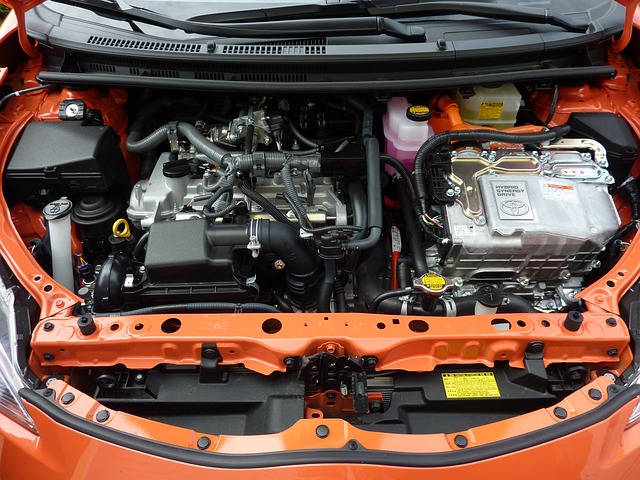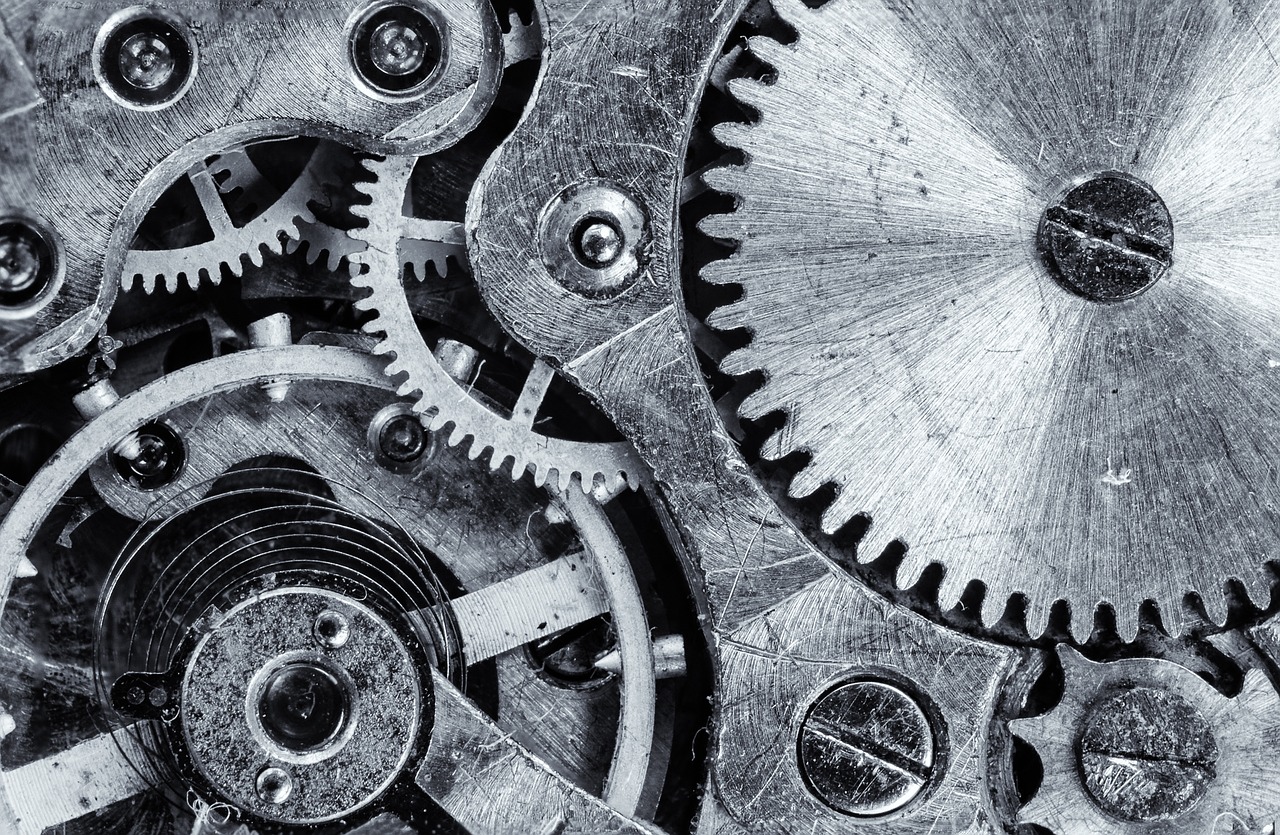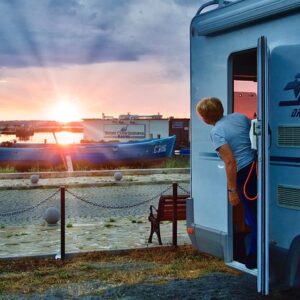Are you worried about the potential engine problems your RV might face on the road? We understand that engine issues can put a damper on your travel plans and even cause significant financial setbacks. But don’t worry, because we’re here to help. We’ve compiled a list of the top five most common RV engine problems and provided solutions to help you get back on the road quickly and safely. From overheating engines to battery issues, we’ll cover it all. In this article, we’ll take a knowledgeable, analytical, and detail-oriented approach to help you troubleshoot and solve these problems. We understand that not everyone is a mechanic, so we’ll break down the problems and solutions in an easy-to-understand manner. By the end of this article, you’ll be equipped with preventative maintenance tips and solutions to avoid and solve these common RV engine problems.
Engine Overheating and Cooling System Problems
Oh boy, when your engine starts overheating and your cooling system isn’t doing its job, it’s a recipe for disaster. You might be wondering what causes engine overheating in an RV.
Well, there are several reasons why this could happen, such as low coolant levels, a malfunctioning water pump, a clogged radiator, or a faulty thermostat. To prevent this from happening, it’s essential to keep an eye on your coolant levels and make sure your system is working correctly.
To maintain a healthy cooling system, you should flush your RV’s radiator every two years or so to ensure that the coolant is flowing correctly. You should also inspect the hoses and belts for any signs of wear and tear and replace them if necessary.
Another crucial tip is to keep the front of your RV free of debris, such as leaves and bugs, that can clog the radiator fins. By following these tips, you can help prevent engine overheating and keep your RV running smoothly on your next road trip.
Battery Issues and Electrical Troubleshooting
You may be experiencing battery and electrical issues in your RV, but don’t worry – we’ve got some troubleshooting tips to help you visualize and address the problem.
One of the most common reasons for battery problems is lack of RV generator maintenance. Neglecting to maintain your generator can lead to a weak battery, which can cause a variety of problems, such as difficulty starting the engine or even complete electrical failure. To avoid this, make sure to regularly check and maintain your RV generator as part of your routine maintenance schedule.

Another solution to your battery and electrical problems is to install solar panels. Solar panels are a clean and renewable source of energy that can help keep your RV battery charged when you’re not using your RV. They’re also environmentally friendly and can help reduce your dependence on non-renewable energy sources.
By installing solar panels, you can make sure that your battery is always charged and ready to go, so you can enjoy your RV without worrying about running out of power. So, if you’re experiencing battery and electrical issues in your RV, consider RV generator maintenance and solar panel installation as possible solutions.
Fuel System Problems and Solutions
Let’s dive into fuel system problems and their potential solutions to keep your RV running smoothly and efficiently on your next adventure.
The fuel system is responsible for delivering fuel to the engine, so any issues with it can result in poor engine performance, reduced fuel efficiency, and even engine failure.
One of the most common fuel system problems is a clogged fuel filter. Over time, debris and contaminants can build up in the fuel filter, causing it to become clogged and reduce fuel flow to the engine. To solve this problem, you should replace your fuel filter regularly according to your manufacturer’s recommendations.
Another common fuel system problem is a malfunctioning fuel pump. The fuel pump is responsible for pumping fuel from the fuel tank to the engine, so any issues with it can cause a lack of fuel pressure, resulting in engine stalling or failure to start. If you suspect a problem with your fuel pump, you should have it inspected by a qualified mechanic. In some cases, a simple repair may be all that’s needed, while in other cases, a complete fuel pump replacement may be necessary.
By staying on top of fuel filter replacements and fuel pump repairs, you can ensure that your RV’s fuel system is in top condition and ready for your next adventure.
Transmission Problems and Maintenance Tips
Now we’re delving into maintaining your transmission and avoiding potential issues that could ruin your RV trip; it’s time to shift gears and keep your ride smooth.
Transmission maintenance is crucial to ensuring that your RV runs smoothly and efficiently. One of the most common transmission failures is overheating. This can be caused by a variety of factors, such as towing heavy loads, driving in hot weather, or not changing the transmission fluid often enough.
To prevent overheating, make sure to check your transmission fluid regularly and change it as recommended by your RV’s manufacturer. You can also install an aftermarket transmission cooler to help regulate the temperature of the transmission fluid.
Another common transmission failure is slipping, which can be caused by a worn clutch or bands, or a low transmission fluid level. To avoid slipping, make sure to check your fluid levels regularly and have your transmission serviced by a professional if you notice any issues.
It’s also important to shift gears properly and avoid sudden stops or starts, as this can put extra strain on the transmission. By following these maintenance tips and being mindful of how you drive, you can avoid common transmission failures and keep your RV running smoothly for years to come.
Brake System Issues and Repairs
Proper maintenance and repair of your brake system is essential for the safety and longevity of your RV. Brake failure can lead to serious accidents, so make sure to regularly check and replace your brake pads. Worn-out brake pads can cause a squeaking noise or reduce braking power, while completely worn-out pads can damage your rotors.
If you notice any unusual noise or a longer stopping distance, have your brake pads inspected and replaced if necessary.
Another common brake system problem is brake fluid leaks. Brake fluid is crucial for transferring the force from your brake pedal to your brakes, so a leak can significantly reduce your stopping power. Brake fluid leaks can be caused by damaged brake lines, corroded fittings, or worn-out seals.
Make sure to regularly check your brake fluid level and look for any signs of leaks, such as a wet spot under your RV or a low brake fluid level. If you notice any leaks, have your brake system inspected by a professional and have the necessary repairs done as soon as possible.
Suspension and Steering Problems
One key to a smooth and enjoyable ride is ensuring your suspension and steering are in good shape, so don’t let these issues go unaddressed.
The suspension system is responsible for absorbing the impact of the road, while the steering system allows you to control the vehicle’s direction. If either of these systems isn’t functioning properly, it can lead to a bumpy and unsafe ride.
One common issue with the suspension system is wheel alignment. Misaligned wheels can cause uneven tire wear, which can lead to a loss of traction and decreased handling. It’s important to have your wheels aligned regularly to prevent this issue.
Another issue to watch out for is worn shocks or sway bars. These parts are responsible for stabilizing your vehicle and keeping it level during turns. If they’re worn or damaged, you may experience excessive body roll or a bouncy ride.
Keep an eye out for these issues and have them repaired promptly to ensure a safe and smooth ride.
Preventative Maintenance and Tips for Avoiding Engine Problems
Maintaining your RV’s engine in good condition is crucial for a worry-free road trip. So, make sure to follow these simple tips to avoid potential issues.
First, make sure to perform regular RV engine maintenance, such as changing the oil and filter, replacing the air filter, and checking the belts and hoses. Regular maintenance will help you detect any problems early on and prevent them from turning into bigger issues.
Another important step in preventing engine problems is to perform engine oil analysis regularly. This process involves analyzing a sample of the oil to determine the engine’s condition and detect any potential issues. By doing this, you can catch issues such as metal shavings, coolant leaks, and fuel contamination before they cause significant damage to your engine.
By following these preventative maintenance tips, you can keep your RV engine running smoothly and avoid any unexpected breakdowns on the road.
Frequently Asked Questions
What are some common signs of engine problems that RV owners should look out for?
As an RV owner, it’s important to keep an eye out for any signs of engine problems. Imagine you’re cruising down the highway on a beautiful day, but suddenly your RV starts to shake and make strange noises. Your heart sinks as you realize something is wrong with your engine.
To avoid being in this situation, there are a few engine maintenance tips and troubleshooting techniques you can follow. Regularly checking your oil levels, changing your air filters, and keeping your engine clean can prevent issues from arising.
Additionally, if you notice any warning lights on your dashboard, strange smells or sounds, or decreased performance, it’s best to get your engine checked by a professional. By staying on top of engine maintenance and troubleshooting, you can ensure a smooth and stress-free RV journey.
How often should RV owners have their engines serviced and maintained?
Regular maintenance and inspections are vital for the longevity and performance of your RV engine. Neglecting these tasks can lead to costly repairs and even engine failure.
It’s recommended to have your engine serviced at least once a year or every 10,000 miles, whichever comes first. However, this may vary depending on the manufacturer’s recommendations and your usage of the vehicle.
DIY engine inspections are also crucial in identifying potential problems early on and preventing further damage. These inspections should include checking the oil level and quality, inspecting belts and hoses for wear and tear, and ensuring proper tire pressure.
Taking the time to properly maintain and inspect your RV engine can save you time and money in the long run.
Can RV owners perform basic engine maintenance and repairs themselves, or should they always consult a professional?
Performing basic engine maintenance and repairs on your RV can be compared to cooking a simple meal – anyone can do it with the right tools and instructions.
However, just as you might consult a professional chef for a more complex dish, it’s always a good idea to seek the advice of a professional mechanic when it comes to engine troubleshooting or major repairs.
It’s important to follow your engine maintenance schedule and address any issues promptly to avoid costly repairs down the road.
DIY engine maintenance can save you money and give you a sense of pride in taking care of your RV, but always know your limits and when to call in the pros for professional engine repair.
Are there any specific brands or types of engine components that are more prone to failure in RVs?
When it comes to RV engine components, there are some common causes of failure that you should be aware of. Some brands or types of components may be more prone to issues than others, so it’s important to do your research before making any purchases.
One preventative measure is to stick with reputable brands and manufacturers, who may offer better warranty coverage in case of any issues. Additionally, there are aftermarket options available that may be more cost-effective than OEM replacements. However, it’s important to note that some warranty coverage may be voided if you use these options, so be sure to check with the manufacturer before making any changes.
Overall, staying informed and proactive about your RV’s engine components can help prevent common issues and keep your vehicle running smoothly.
How can RV owners extend the lifespan of their engines and prevent future problems from occurring?
To keep your RV engine running smoothly, it’s important to prioritize engine maintenance and care. Start with regular oil changes and tune-ups, as these basic tasks can greatly extend the lifespan of your engine.
Additionally, make sure to inspect and replace air and fuel filters as needed, and keep an eye on your engine’s fluid levels. Proper storage and usage can also go a long way in preventing future problems from occurring.
When storing your RV, make sure to properly winterize it to prevent any damage to the engine. When using your RV, avoid overloading it or driving it at excessive speeds.
By following these engine maintenance tips and practicing proper RV engine care, you can help ensure that your engine stays in top shape for years to come.
Conclusion
Congratulations! You now know the top five most common RV engine problems and how to solve them. As you hit the road in your RV, make sure to keep an eye out for any signs of engine trouble. Remember, prevention is key.
Regular maintenance and check-ups can help avoid costly repairs down the road. In a way, your RV’s engine is like a heart that keeps your vehicle running smoothly. Just like how you take care of your heart by eating well and exercising regularly, you must also take care of your engine by providing it with the proper maintenance and attention it deserves.
By doing so, you can ensure a long and healthy life for your RV’s engine, and a stress-free journey on the road. Safe travels!




